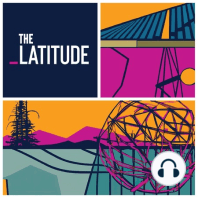43 min listen
Climavores: The intersection of animal welfare and climate
FromThe Latitude
ratings:
Length:
46 minutes
Released:
Aug 16, 2022
Format:
Podcast episode
Description
Prioritizing efficiency in the U.S. chicken industry has made chicken cheap. And that’s led, in part, to Americans eating way more chicken and significantly less beef than they did a half-century ago. From a climate change perspective, it’s a major win. From an animal welfare perspective… not so much.
In this episode, Mike and Tamar look at animal welfare in the beef, pork and chicken industries through a climate lens. They ask whether raising animals more humanely means accepting higher greenhouse gas emissions, or whether there’s a middle ground. And Mike responds to a reader’s critique of his recent Canary Media article “What’s the most climate-friendly way to eat? It’s tricky.” Plus, are organically raised animals treated better than industrially raised?
And Mike asks the question: What do we owe the animals we eat?
Have a question about food and climate change for Mike and Tamar? Leave a message on the Climavores hotline at (508) 377-3449. Or email us at climavores@postscriptaudio.com. We might feature your question on a future episode.
Climavores is a production of Post Script Media.
Resources:
College of Agriculture and Environmental Science: Examining the effects of hen housing
Science Direct: Evaluating environmental impacts of contrasting pig farming systems with life cycle assessment
NYTimes: Hens, Unbound
In this episode, Mike and Tamar look at animal welfare in the beef, pork and chicken industries through a climate lens. They ask whether raising animals more humanely means accepting higher greenhouse gas emissions, or whether there’s a middle ground. And Mike responds to a reader’s critique of his recent Canary Media article “What’s the most climate-friendly way to eat? It’s tricky.” Plus, are organically raised animals treated better than industrially raised?
And Mike asks the question: What do we owe the animals we eat?
Have a question about food and climate change for Mike and Tamar? Leave a message on the Climavores hotline at (508) 377-3449. Or email us at climavores@postscriptaudio.com. We might feature your question on a future episode.
Climavores is a production of Post Script Media.
Resources:
College of Agriculture and Environmental Science: Examining the effects of hen housing
Science Direct: Evaluating environmental impacts of contrasting pig farming systems with life cycle assessment
NYTimes: Hens, Unbound
Released:
Aug 16, 2022
Format:
Podcast episode
Titles in the series (49)
The rise and fall of plant-based meat: When will fake meat replace the real thing on our dinner plates? by The Latitude
